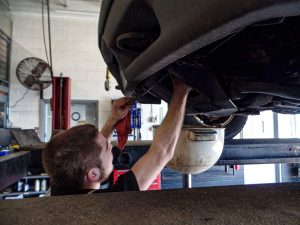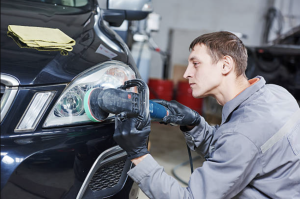
If you have a damaged vehicle that’s beyond repair, it might make more financial sense to sell its parts than to try to fix it and apply for a salvage title. In this case, you might want to consider junking your vehicle. Junking a vehicle involves selling it to a junk or car scrap yard for its parts. If you’re interested in this approach, keep reading for some helpful tips on how to junk a vehicle.
Contact Your Local Junk or Salvage Yards
To start, it’s important to note that the requirements for junking vehicles can vary by state and by junkyard. Therefore, it’s crucial to do your research and check your state’s salvage auto regulations to learn about title, registration, and license plate requirements. Here are some general guidelines to follow when junking your vehicle:
1. Contact multiple area junk or salvage yards:
Before making any decisions, shop around and contact a few junk or salvage yards in your area. Ask about their preparation requirements, such as whether they prefer to dismantle the vehicle themselves or if they offer more money if you do it yourself. Additionally, find out if they require you to get rid of tires and any other non-metal materials or if they handle that themselves. Lastly, compare prices among different junkyards to ensure you get the best deal.
2. Provide information about your vehicle:
Be prepared to provide information about your vehicle, such as whether it’s operable, which parts are damaged, and the Kelley Blue Book (KBB) or National Automobile Dealers Association (NADA) value.
Understand Your State’s Junked Vehicle Requirements
It’s important to note that each state has its own requirements when it comes to titling and registering a salvaged vehicle. Here’s what you should know:
1. Complete junked or salvaged auto paperwork:
Your state might require you to complete junked or salvaged auto paperwork, also known as a Damage Disclosure Statement. This paperwork is usually included on the back of the title, but your DMV might provide appropriate paperwork if it’s not.
2. Show the vehicle title and proof of registration:
Some junkyards might require you to show them the vehicle title and proof of registration. Before releasing these documents, be sure to check with your DMV.
3. Relinquish the license plate(s):
Your state might require you to relinquish the license plate(s) before you can junk the vehicle.
When it comes to determining whether or not to junk your vehicle, it’s important to take a look at the potential environmental impact it may have. While scrapping a car does bring about some environmental benefits, it can also have some drawbacks. For instance, the process of manufacturing new trucks and cars can have a significant carbon footprint, which is why the longer you can keep an old car on the road, the more you can reduce your carbon footprint. Whether or not you choose to junk your vehicle should depend on the extent and nature of the damage as well as your own capacity for being eco-friendly.
In addition to considering the environmental impact when determining whether or not to junk your vehicle, you could also think about utilizing the services of a scrap company. Not only do many of these companies offer the convenience of coming to you, but they may also pay you more for your vehicle as they are specialized in scrapping cars, meaning, they can add value through the salvaging or repurposing of your vehicle. All things considered, making informed and planned decisions when junking your vehicle could potentially yield unexpected benefits besides simply making some quick cash.
Final Thoughts
Junking a vehicle can be a great way to make some money off a damaged vehicle that’s beyond repair. However, it’s important to follow your state’s regulations and shop around for the best deal. By following these guidelines, you’ll be on your way to successfully junking your vehicle.






